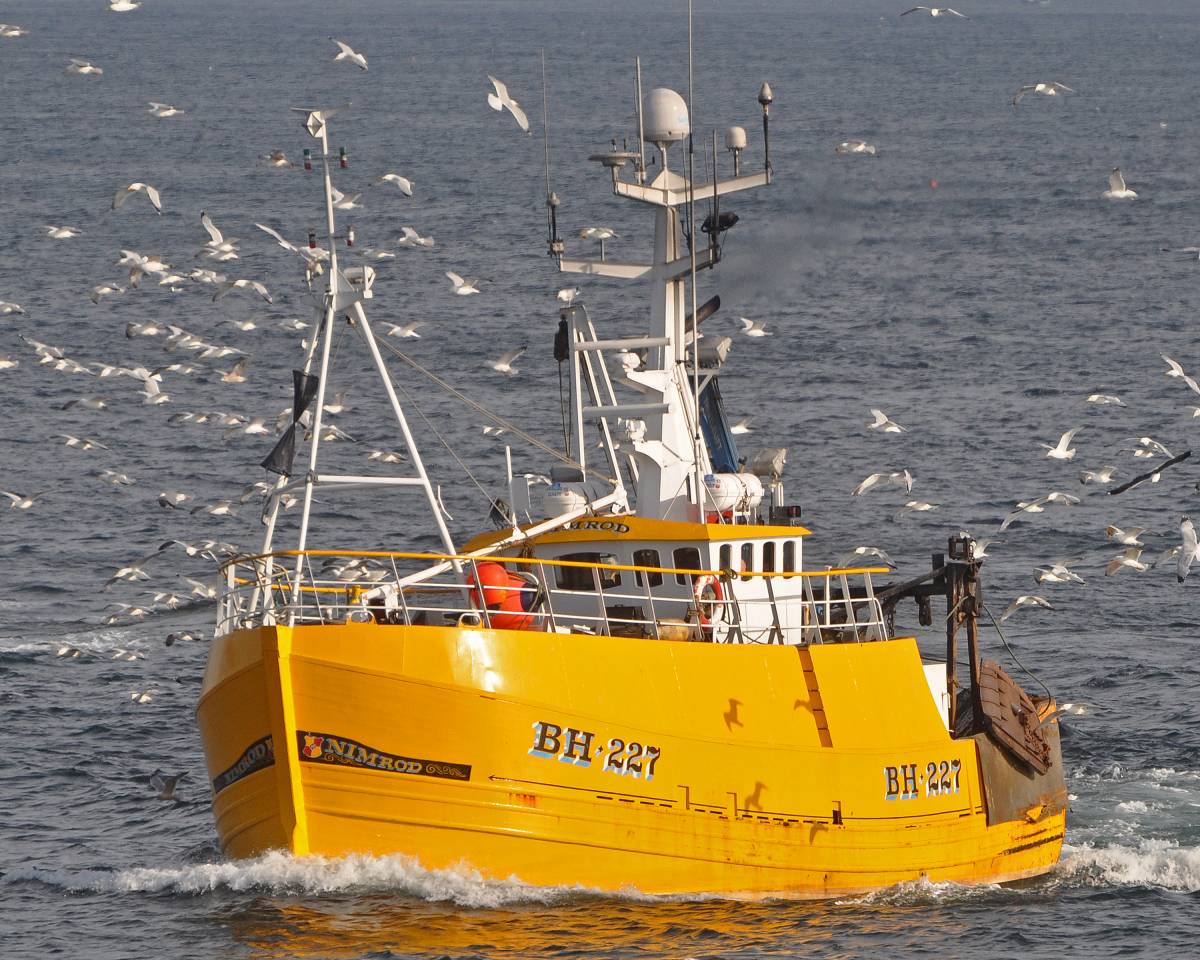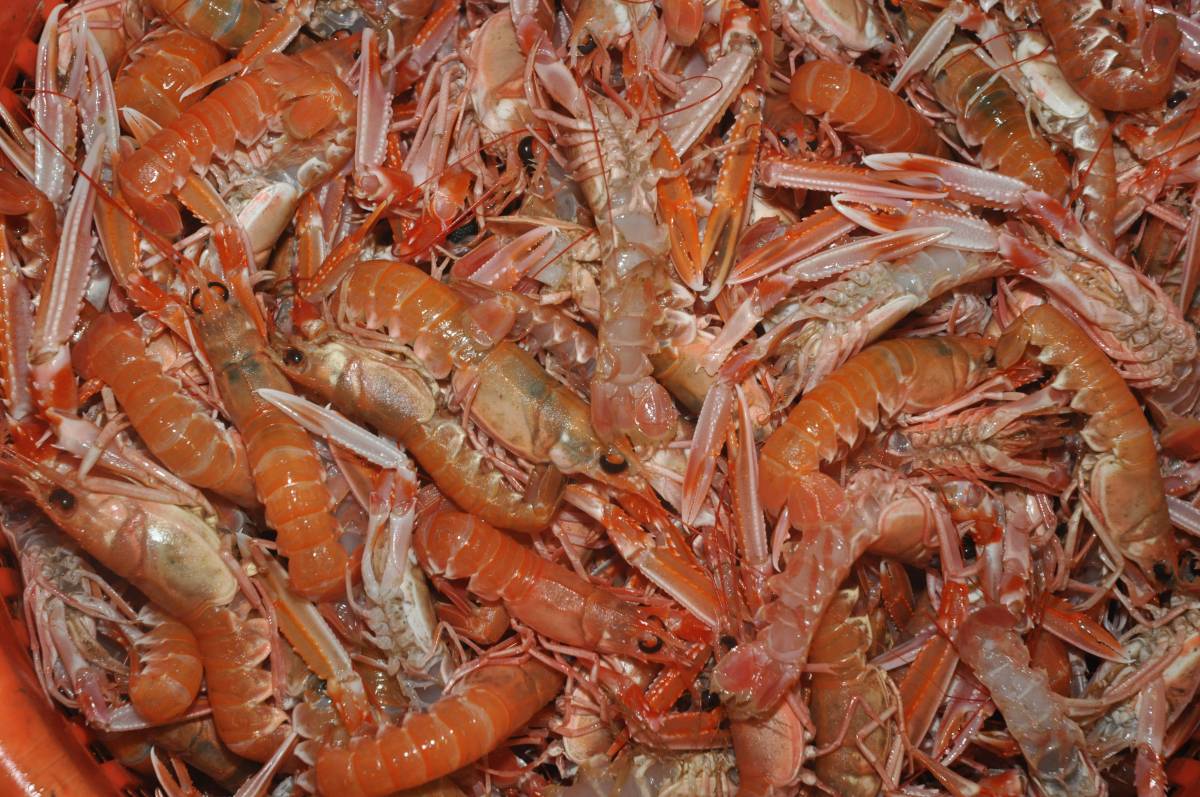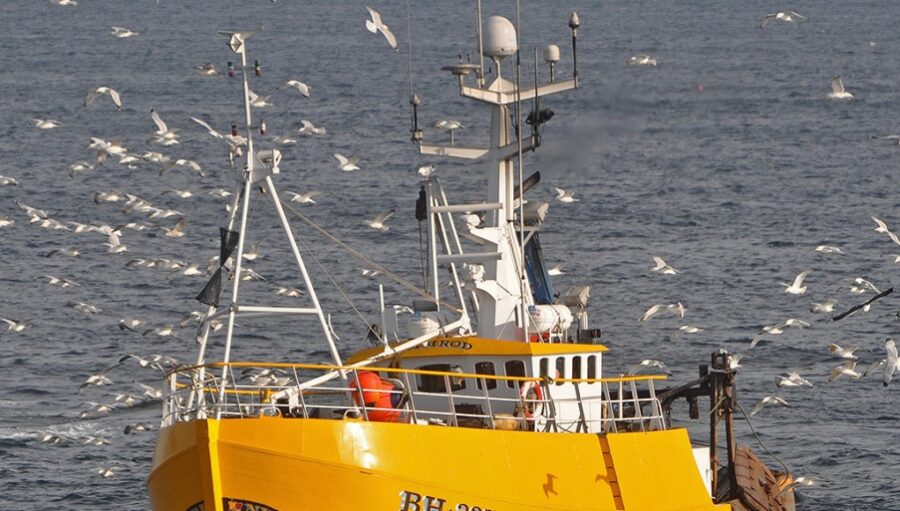A meeting on Monday last week (15 February) to discuss technical measures to protect the Farne Deeps Nephrops fishery produced no agreement, reports Tim Oliver.
Scientists say the stock needs recovery and at the December Council it was proposed that technical measures should be put in place to manage the fishery and rebuild the stock.
But with so many different interests, sizes of vessel and ranges of fishing gear used in the fishery, it was not possible to agree a definite industry or UK position.
The devolved administrations will also have to discuss the issue and then agree a package with DEFRA that must be put to the Commission before the end of March. The Commission’s scientific and technical committee (STECF) will then examine the package and advise the Commission before it makes formal proposals.
The meeting was held at the NFFO offices in York and was attended by officials from DEFRA and MMO, scientists from CEFAS and a wide variety of fishing groups and interests, including from Northern Ireland and Scotland.

The Amble trawler Nimrod is one of a wide range of trawlers from England, N Ireland and Scotland heavily reliant on the Farne Deeps.
Reaching agreement on measures is difficult because of the wide range of vessels that pursue the fishery, from local under-10m boats through to single-rig trawlers and large twin-riggers. Nomadic vessels from Scotland and Northern Ireland visit the winter fishery, which sees a heavy effort on the grounds.
Among the measures discussed were horsepower and gear restrictions/exclusions, mesh size increases, and the use of lifting bags.
The North Sea advisory committee had suggested that the stock depletion problem should be addressed by designating part of the North Sea Nephrops quota specifically for the Farne Deeps fishery as an ‘of which’ quota, but the overall preference of DEFRA and the devolved administrations was for technical measures.
NFFO chief executive Barrie Deas, who was at the meeting, said no consensus was reached, but this was never likely given the wide range of different interests. “Nothing was off the table. Different people had different views which they expressed clearly,” he told Fishing News.
“It will now be up to DEFRA and the devolved administrations to come up with proposals to put to the Commission in the light of what was said at this meeting, and others that they will hold.”
The UK has 90% of the TAC so, apart from a small Dutch interest, there is not the complication of other member states being involved in formulating proposals.
Barrie Deas said that scientists have been saying for two or more years that the Farne Deeps stock is weak and needs special treatment. “The science was not seriously disputed – everyone recognises that there is a heavy effort on the fishery and, while there may be questions here and there, no one is saying things are rosy,” he said.

The Farne Deeps Nephrops fishery is of paramount importance for both fishermen and processors.
“With such a wide range of views and interests, all you can do is to collate the views and make sure they’re expressed as clearly as possible.”
He said the Farne Deeps Nephrops fishery was a contrast to stocks generally, and other Nephrops stocks, which appear to be healthy.
Scientists have for some time called for separate TACs to be set for individual Nephrops stocks – or ‘functional units’ – but the industry has resisted this as being too complicated and restricting flexibility to fish in different areas.
SWFPA response
The Scottish White Fish Association (SWFPA) represents the interests of around 180 member vessels, many of whom operate within the Nephrops Sector. The Fladen Ground provides the majority of catches for these vessels, although the seasonal Farne Deeps fishery provides an essential seasonal element of their income
General comment
SWFPA members agree that measures must be taken to deliver recovery of the Farne Deeps Nephrops Stock (FU7). However, we believe that such technical measures should be phased, and the approach should be such that everyone involved in the fishery contributes to its recovery.
- SWFPA members agree that measures must be taken to deliver recovery of the Farne Deep Nephrops stock (FU7).
- We believe that such technical measures should be phased, and the approach should be such that everyone involved in the fishery contributes to its recovery.
- We believe that no one sector is more important than the other, although we recognise the socio-economic vulnerability of some sectors.
- SWFPA members believe firmly in the ‘right to roam’ principle, and the need to maximise opportunity with regard to pursuing fisheries that provide the best economic return.
- We are firmly against planned inefficiency, but accept that some limitations are required, hence we refuse to accept that limiting vessels to one net is a credible option.
- We refuse to accept that a ban on the use of twin/multi-rig would provide any degree of fairness, given the approach only targets the larger, nomadic vessels.
- Restricting the number of nets would, we feel, promote the use of higher standing nets in order to capture more fish, as a way of recovering lost income. This may be at odds with the need to reduce fish capture in the small-mesh fisheries as we move towards the landing obligation.
- Taking the above comments into consideration, we set out below the range of measures our membership would be willing to accept when fishing the Farne Deeps.
Response
- Vessels targeting Nephrops within the Farne Deeps area may do so only while fishing with a minimum mesh of 100mm.
- The use of any towed nets constructed wholly or in part in the cod-end in excess of double 5mm or single 10mm shall be prohibited.
- The use of a lifting/strengthening bag shall be prohibited.
- No vessel of more than 350kW (476hp) shall be allowed to operate within 12nm of the coast.
- Vessels of less than 350kW (476hp) shall not be allowed to operate outwith 12nm from the coast.
Read more news stories here…








